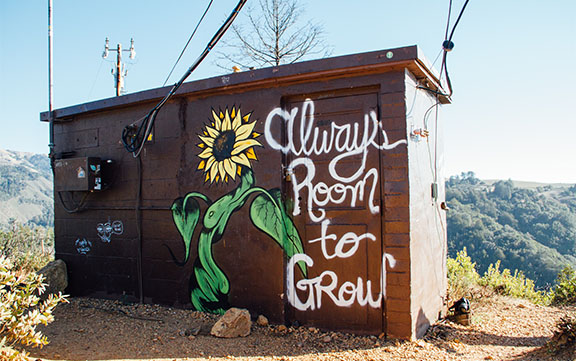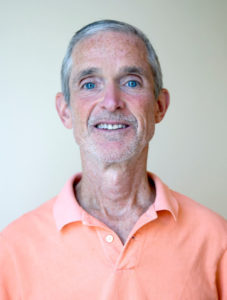
Photo by Kyle Glenn
Many of us live in a culture that resists a quiet inward orientation. Our senses are constantly lured outward with flashy images, sound bites and all manner of entertainment, expressly designed to capture and keep our attention. It’s intoxicating and another example of how modern technology has separated us from the natural rhythms of life.
If you’ve ever been camping overnight, you know how practical it is to set up camp before nightfall, stay put and wait for the light to move on. In the same way, life often calls for us to pause from so much activity, take stock of where we are and wait until the way forward is clear.
We have much to learn from turning inward and reflecting on the obstacles that limit our spiritual growth and prevent us from navigating daily life with peace in our hearts. Increased self-awareness enables us to disentangle ourselves from the habitual thought patterns that cloud our vision. Then we can uncover the roots of our suffering and expose the unconscious beliefs that are the seeds for frustration and struggle.
Even when fear, frustration, or grief is triggered from some deeper place inside, we may not take the time to look into it. We may unconsciously avoid such painful emotions that can feel like a sign of weakness or conflict with the self-image we are trying to maintain. It’s easy to feel too busy to dwell on something we cannot easily understand and makes us feel ashamed or depressed.
We may need the support of a trusted friend to feel safe enough to look in the unexamined corners of our hearts and allow ourselves to explore painful emotions. When we are able to be with our anger or grief and let those energies move, we can often see what gave rise to them and how they can be fully digested, so that whatever lessons can be gleaned become nourishment and anything unnecessary is eliminated.
Another example of the need for listening into our unhealed parts is the way our good intentions to make lifestyle changes can be thwarted by some subconscious resistance. How often does a New Year’s resolution peter out within a few weeks? And consider how difficult it can be to let go of some addictive behavior even when we really want to. The ways we overindulge in unhealthy habits may be methods of compensating for the painful aspects of our lives or ways to avoid feeling how our hearts are hurting.
If we are willing to look at ourselves with honesty and compassion, instead of the harsh judgment that makes reflecting so painful, we may be able to perceive the hidden needs that live beneath our awareness. It took me years to really understand that my moments of compulsive eating were a subconscious reaction to the way I would push myself beyond my limits out of some unknown need to feel worthy of love.
Writing regularly in a journal can be helpful in exposing the concealed energies that are influencing our behavior and thinking. We can experiment this way with giving a voice to the hidden needs that might compel us to spin the truth, fall again into an old habit, or blurt out some hurtful words that we soon regret. A regular meditative practice also helps to develop the neutral awareness and clarity to make space for the unspoken voices that lie beneath the surface of the mental lake.
Shining the light of awareness in this way, enables us to include these messages as we plant new seeds for future growth—gentle reminders to lean into the quiet presence of stillness for the maturation and inner strength it brings to our lives.
About the Author:
 Swami Ramananda is the president of the Integral Yoga Institute of San Francisco and a greatly respected master teacher in the Integral Yoga tradition, who has been practicing Yoga for more than 35 years. He offers practical methods for integrating the timeless teachings and practices of Yoga into daily life. He leads beginner, intermediate, and advanced-level Yoga Teacher Training programs in San Francisco and a variety of programs in many locations in the United States, Europe, and South America. Swami Ramananda trains Yoga teachers to carry Yoga into corporate, hospital, and medical settings and has taught mind/body wellness programs in many places. He is a founding board member of the Yoga Alliance, a national registry that supports and promotes Yoga teachers as professionals.
Swami Ramananda is the president of the Integral Yoga Institute of San Francisco and a greatly respected master teacher in the Integral Yoga tradition, who has been practicing Yoga for more than 35 years. He offers practical methods for integrating the timeless teachings and practices of Yoga into daily life. He leads beginner, intermediate, and advanced-level Yoga Teacher Training programs in San Francisco and a variety of programs in many locations in the United States, Europe, and South America. Swami Ramananda trains Yoga teachers to carry Yoga into corporate, hospital, and medical settings and has taught mind/body wellness programs in many places. He is a founding board member of the Yoga Alliance, a national registry that supports and promotes Yoga teachers as professionals.

